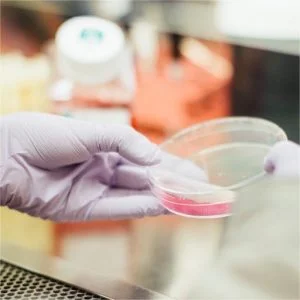Featured Products
Explore Products
- In-Stock Tumor Cell Lines
- Human Orbital Fibroblasts
- Human Microglia
- Human Pulmonary Alveolar Epithelial Cells
- Human Colonic Fibroblasts
- Human Type II Alveolar Epithelial Cells
- Human Valvular Interstitial Cells
- Human Thyroid Epithelial Cells
- C57BL/6 Mouse Dermal Fibroblasts
- Human Alveolar Macrophages
- Human Dermal Fibroblasts, Adult
- Human Lung Fibroblasts, Adult
- Human Retinal Muller Cells
- Human Articular Chondrocytes
- Human Retinal Pigment Epithelial Cells
- Human Pancreatic Islets of Langerhans Cells
- Human Kidney Podocyte Cells
- Human Renal Proximal Tubule Cells



 The BeWo choriocarcinoma cell line, specifically the b30 clone, is a human trophoblast cell line that exhibits notable morphological and biochemical differentiation, which closely mirrors the characteristics observed in normal trophoblasts. This differentiation process is initiated through the elevation of intracellular cAMP levels when exposed to forskolin, effectively emulating the regulatory mechanisms of normal trophoblasts. Importantly, BeWo clone b30 cells have been demonstrated to express neutral amino acid transport systems that closely resemble those found in their normal trophoblast counterparts, with similar contributions from systems A, ASC, and L.
The BeWo choriocarcinoma cell line, specifically the b30 clone, is a human trophoblast cell line that exhibits notable morphological and biochemical differentiation, which closely mirrors the characteristics observed in normal trophoblasts. This differentiation process is initiated through the elevation of intracellular cAMP levels when exposed to forskolin, effectively emulating the regulatory mechanisms of normal trophoblasts. Importantly, BeWo clone b30 cells have been demonstrated to express neutral amino acid transport systems that closely resemble those found in their normal trophoblast counterparts, with similar contributions from systems A, ASC, and L.